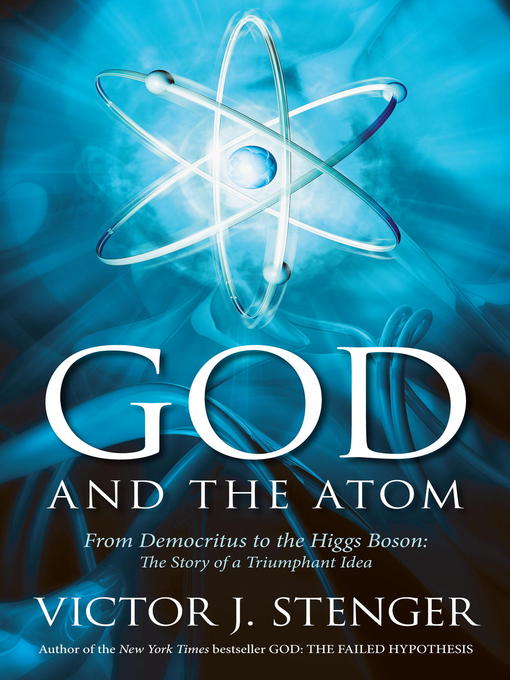
God and the Atom
فرمت کتاب
ebook
تاریخ انتشار
2013
نویسنده
Victor J. Stengerناشر
Prometheus Booksشابک
9781616147549
کتاب های مرتبط
- اطلاعات
- نقد و بررسی
- دیدگاه کاربران
نقد و بررسی

February 4, 2013
Stenger, an emeritus professor of physics at the University of Hawaii, argues in this quick philosophical treatise and history of atomic theory that the existence of the atom proves that God doesn’t exist. Skimming the centuries, Stenger explains how ancient Greek atomists like Democritus and Epicurus insisted that the world—including the soul—is made up of atoms; further, they posited that when the body perishes, so too does its ethereal counterpart. This contradicted the “antiatomist” views of Aristotle and, later, the Christian idea of an immortal soul. But it was ultimately the writings of the atomists—some of which were rediscovered during the Renaissance—that fed the scientific revolution and abetted the rise of rational thought over religious dogma. Stenger (God: The Failed Hypothesis) rapidly covers a lot of ground: a swift jog through modern physics, followed by brief considerations of dark matter, dark energy, and the origin of the universe, concludes with the assertion that there is no empirical evidence for the existence of a higher power. Stenger’s argument is convincing, but it’s unclear whom he expects to convert, as those most likely to read the book probably already agree with him. Illus.

February 15, 2013
An emeritus professor of physics and astronomy traces the roots of modern science, including the discovery of the Higgs boson, to the materialist Greek and Roman philosophers 2,500 years ago. Stenger (God and the Folly of Faith, 2012, etc.) once again picks up the cudgels for radical atheism: "[A]toms and the void indeed are all there is....Atomism is Atheism." Identifying his philosophical stance with that of Democritus and Epicurus, whom he considers to have been closet atheists, he rejects any notion of divine creation or purpose in the universe. Stenger traces the search for the ultimate particle from the earliest notion of the atom up to the present time. The search began with the discovery of the laws of motion by Galileo, Copernicus and Newton and continued with Faraday and Maxwell's unification of electromagnetism and more, culminating in the theory of relativity and quantum physics. Today, writes the author, scientists believe electrons, photons and quarks to be elementary. With the discovery of the Higgs boson, "modern science has fully confirmed the model of the world first proposed 2,500 years ago," he writes, and "the atomic model exemplifies the notion that we can reduce everything to its parts." Stenger brushes aside the philosophical importance of the quantum paradoxes such as the wave/particle duality. Admitting that the description of most complex systems, such as neuroscience or political science, cannot be derived from particle physics, he nonetheless dismisses the notion that "new laws of nature operating on the collective scale must come into play." Readers unfamiliar with the scientific issues will find this difficult reading. A disappointing rehash of the science-vs.-religion debate.
COPYRIGHT(2013) Kirkus Reviews, ALL RIGHTS RESERVED.

























دیدگاه کاربران